
Book Bits: 18 October 2025
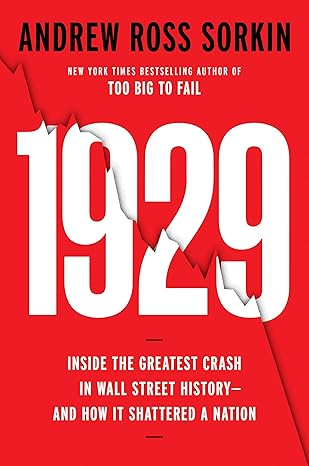
By purchasing books through this site, you provide support for The Capital Spectator’s free content…● 1929: Inside the Greatest Crash in Wall Street History–and How It Shattered a Nation Andrew Ross Sorkin Interview with author via CBS News After nearly a decade spent studying the most famo…
 ● 1929: Inside the Greatest Crash in Wall Street History–and How It Shattered a Nation
● 1929: Inside the Greatest Crash in Wall Street History–and How It Shattered a Nation
Andrew Ross Sorkin
Interview with author via CBS News
After nearly a decade spent studying the most famous stock market crash in history, financial journalist Andrew Ross Sorkin warns that the Wall Street of today echoes the market of 1929, when highs preceded a massive slump, leading to the Great Depression.
Artificial intelligence and technology have contributed to a remarkable boom in recent years. But, Sorkin said, today’s economy is being propped up by the AI boom, and it’s too soon to tell if this is a sugar rush, a short-term and unsustainable boost to the markets. But, Sorkin is positive there’s a crash coming.
“I just can’t tell you when, and I can’t tell you how deep,” he said. “But I can assure you, unfortunately, I wish I wasn’t saying this, we will have a crash.”
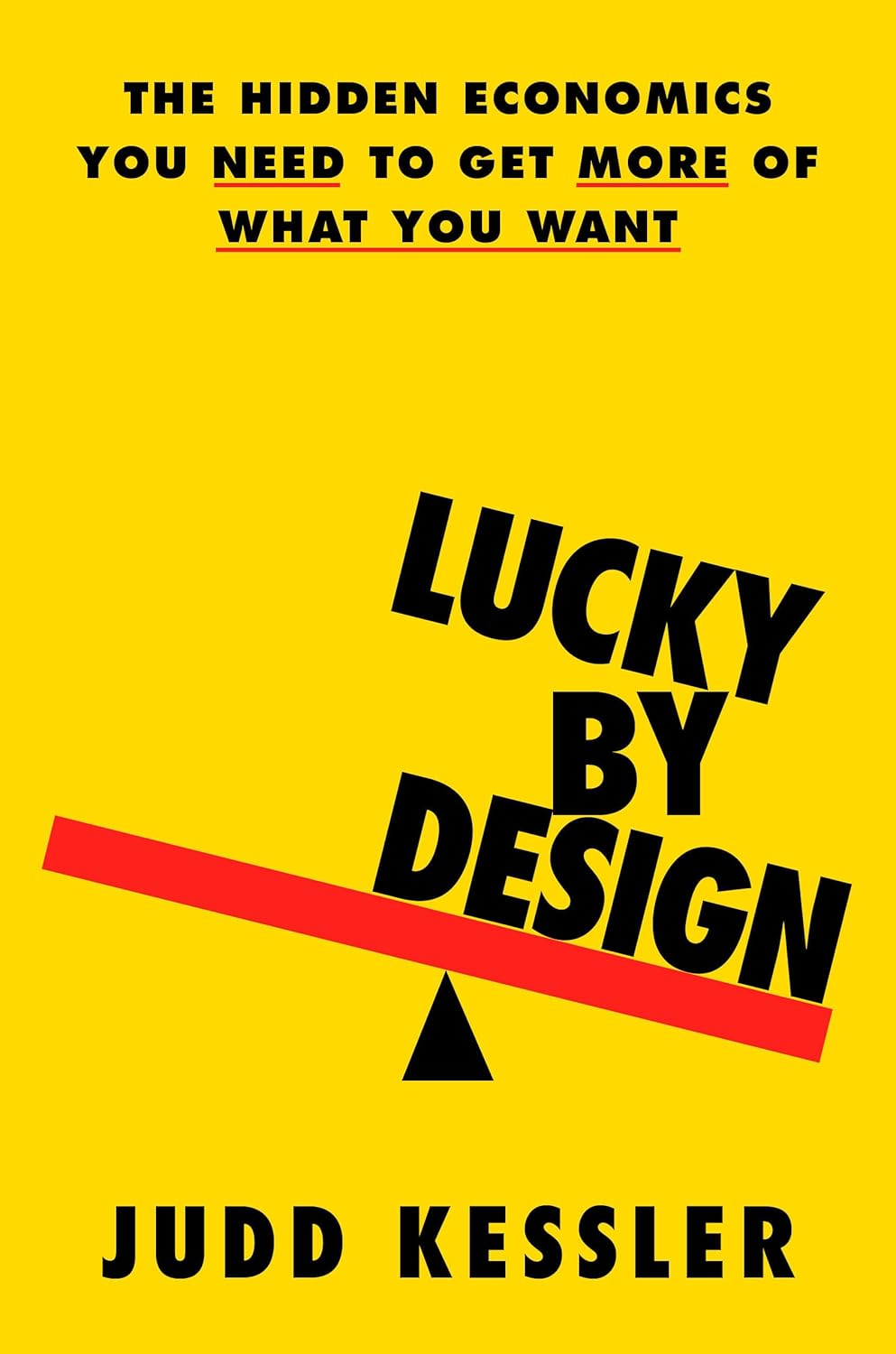 ● Lucky by Design: The Hidden Economics You Need to Get More of What You Want
● Lucky by Design: The Hidden Economics You Need to Get More of What You Want
Judd Kessler
Excerpt via Knowledge at Wharton
We are routinely in situations where scarce resources are allocated in ways that we do not fully understand. Without understanding the rules of the game, you might assume that your outcomes are determined mostly by luck. But there are rules — often hidden and complex rules — that determine who gets what. When you aren’t aware of them, you often wind up just like Natalie: using a suboptimal strategy and losing to people who seem to know tricks that you do not.
People who end up unhappy about what they get conclude that they were unlucky or that the system was rigged against them. After enough of these experiences, they believe that’s just how the world works.
But it doesn’t have to be.
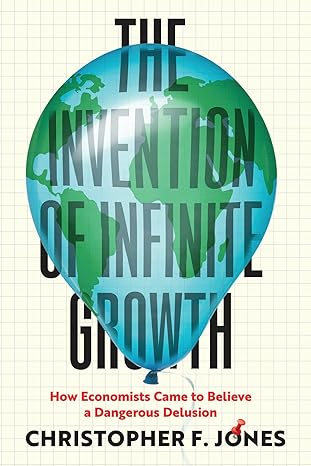 ● The Invention of Infinite Growth: How Economists Came to Believe a Dangerous Delusion
● The Invention of Infinite Growth: How Economists Came to Believe a Dangerous Delusion
Christopher F. Jones
Summary via publisher (U. of Chicago Press)
Most economists believe that growth is the surest path to better lives. This has proven to be one of humanity’s most powerful and dangerous ideas. It shapes policy across the globe, but it fatally undermines the natural ecosystems necessary to sustain human life. How did we get here? In The Invention of Infinite Growth, environmental historian Christopher F. Jones takes us through two hundred and fifty years of economic thinking to examine the ideal of growth, its powerful influence, and the crippling burdens many decisions made in its name have placed on us all. Jones argues that the pursuit of growth has never reflected its costs, because economists downplay environmental degradation. What’s worse, skyrocketing inequality and diminishing improvements in most people’s well-being mean growth too often delivers too little for too many.
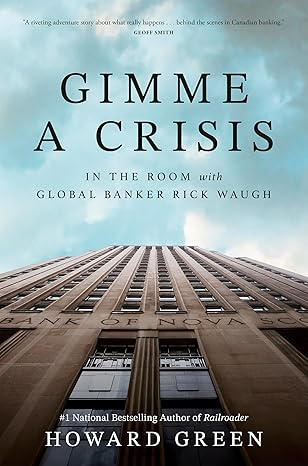 ● Gimme a Crisis: In the Room with Global Banker Rick Waugh
● Gimme a Crisis: In the Room with Global Banker Rick Waugh
Howard Green
Interview with author via Bloomberg
After world economies collapsed during financial turmoil, Scotiabank CEO Rick Waugh’s valiant efforts to keep his company afloat were praised, and now his accounts are penned in a new book.
Waugh managed the bank during the 2008 global financial crisis maintaining interbank lending in Canada. He helped Canadian banks remain stable and profitable during financial meltdown. He worked closely with Bank of Canada governor – and now Prime Minister – Mark Carney to ensure banks continued lending to each other.
“That solved a huge problem during the financial crisis, because Canadian banks were still operating,” author Howard Green told BNN Bloomberg in a Tuesday interview.
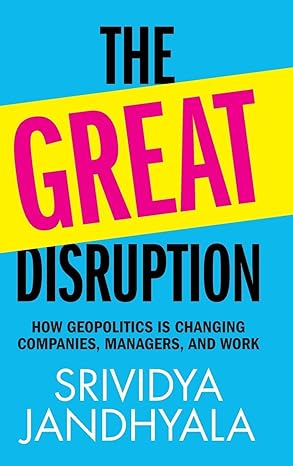 ● The Great Disruption: How Geopolitics is Changing Companies, Managers, and Work
● The Great Disruption: How Geopolitics is Changing Companies, Managers, and Work
Srividya Jandhyala
Summary via publisher (Cambridge U. Press)
In an era marked by new challenges – from trade wars and sanctions, to supply chain disruptions and political instability – understanding the relationship between geopolitics and business is more crucial than ever. How are companies impacted and why should they care? This book explores how geopolitical shifts, including the rise of China, the US-China tech competition, and regional conflicts, affect markets, industries, companies, managers, and employees. Uncovering the structural changes reshaping the global business environment, the business risks from an increasing national security focus, and the implications of trade wars and global conflicts on innovation, Srividya Jandhyala offers practical strategies and skills for managers and employees to manage these risks.
Please note that the links to books above are affiliate links with Amazon.com and James Picerno (a.k.a. The Capital Spectator) earns money if you buy one of the titles listed. Also note that you will not pay extra for a book even though it generates revenue for The Capital Spectator. By purchasing books through this site, you provide support for The Capital Spectator’s free content. Thank you!
Author: James Picerno
